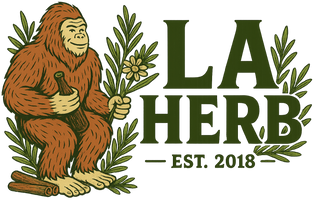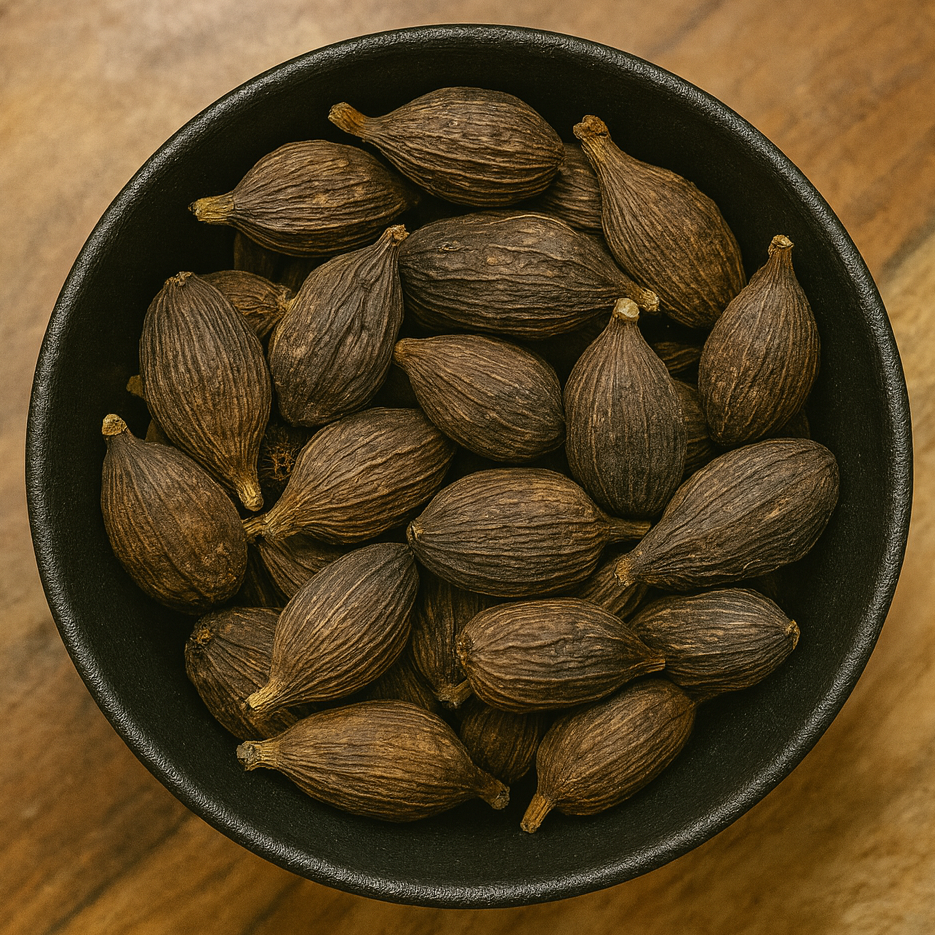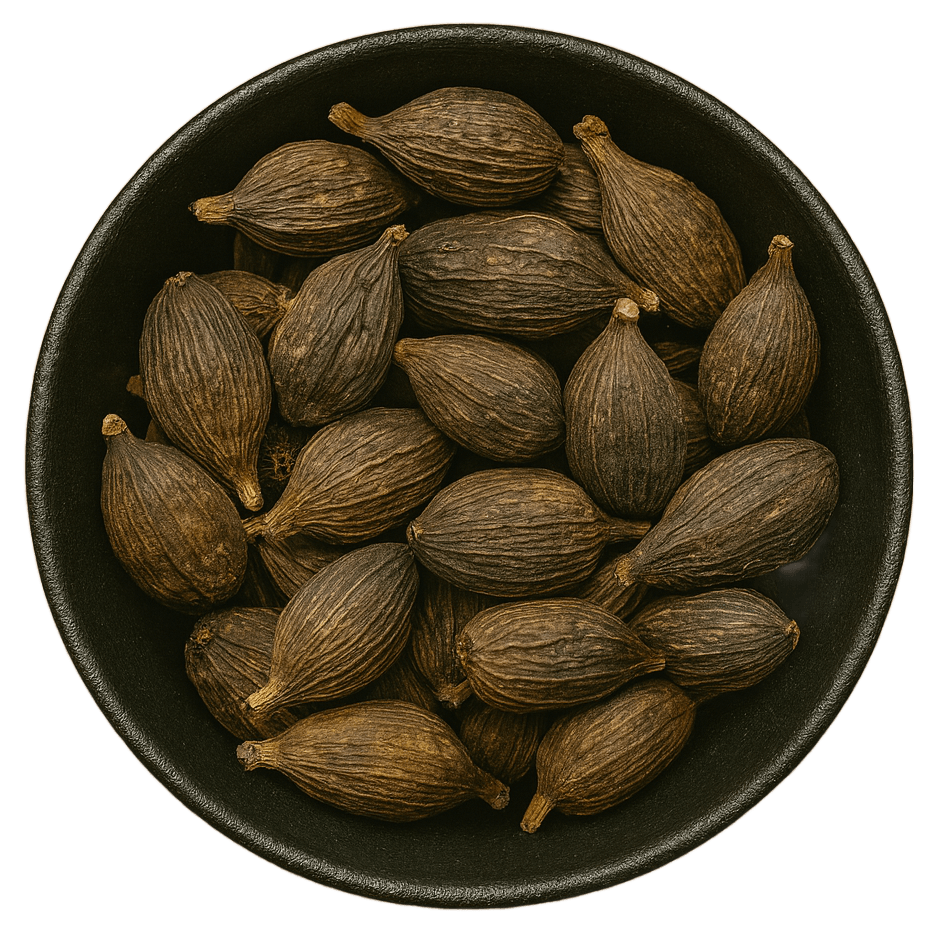Black Cardamom Whole (Amomum Tsaoko)
Black Cardamom Whole (Amomum Tsaoko) - 1 oz is backordered and will ship as soon as it is back in stock.
Couldn't load pickup availability
Black Cardamom Whole (Amomum tsaoko) is the dried fruit of a fragrant perennial plant in the ginger family, prized in traditional Chinese medicine (TCM) and culinary traditions for its warming, aromatic, and digestive properties. Known in TCM as Cao Guo, this large, smoky cardamom has been used for centuries to dispel cold, dry dampness, and support the spleen and stomach.
In traditional practice, Black Cardamom is described as pungent and warm, entering the Spleen and Stomach channels. It is commonly prescribed to treat damp-cold accumulation, bloating, nausea, and poor appetite, and to disperse cold from the middle burner, relieving symptoms such as abdominal distension or loose stools. It is also used to clear food stagnation and neutralize the effects of greasy or heavy foods.
In TCM formulas, Cao Guo is often paired with other aromatic herbs such as Atractylodes (Cang Zhu) and Magnolia Bark (Hou Po) to transform dampness and warm the digestive system. It also appears in formulas addressing malarial disorders and damp-heat in the digestive tract, showing its dual action of clearing and dispersing.
Modern phytochemical research identifies volatile oils (such as cineole and camphor), flavonoids, and terpenes in Amomum tsaoko, which contribute to its carminative, antimicrobial, and anti-inflammatory properties. These compounds help explain its use for digestive support, circulation, and respiratory balance.
Each batch of Black Cardamom Whole (Amomum tsaoko) is carefully harvested and slow-dried to preserve its smoky aroma, dark brown color, and potent essential oils. When decocted or ground, it releases a warm, camphoraceous fragrance that stimulates digestion and clears internal dampness.
Also Known As: Cao Guo, Fructus Amomi Tsaoko, Black Cardamom, Chinese Black Cardamom, Tsao-ko Fruit
Nutrients: Volatile oils (cineole, camphor, borneol), flavonoids, phenolic acids, and trace alkaloids
Notes: In Traditional Chinese Medicine, Cao Guo is used to dry dampness, warm the middle burner, and resolve malarial disorders. Commonly prescribed for abdominal distention, indigestion, nausea, and diarrhea due to cold-damp accumulation. It is also used in cooking—particularly in Yunnan and Sichuan cuisines—for its smoky, resinous aroma that enhances stews, soups, and braised dishes. Modern studies show antibacterial and digestive benefits. Caution: Avoid in cases of yin deficiency with internal heat.






